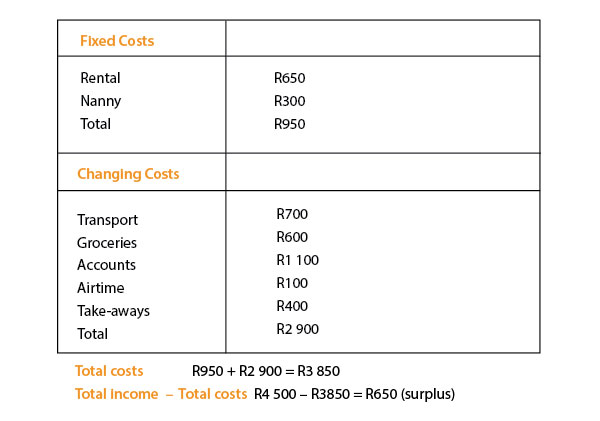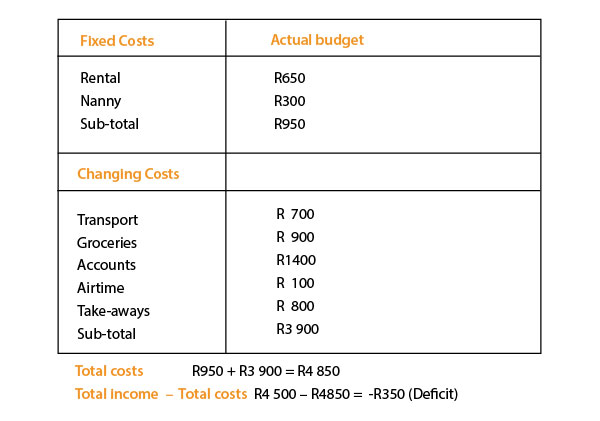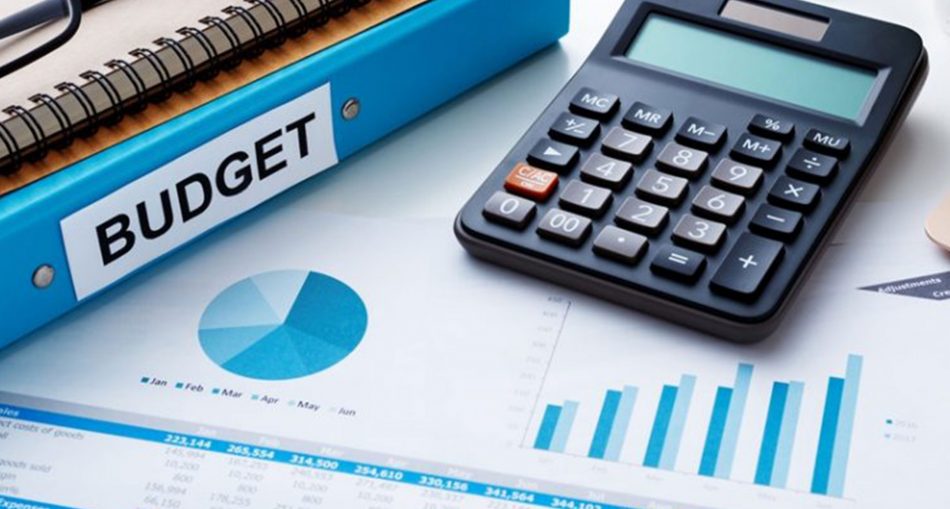Budgeting is an important step towards financial independence. Responsible money management helps with controllable spending, managing debt and avoiding unnecessary credit. This will help you live within your means. It is sad that we live in a society that falls into depression and too many suicides all because of poor financial responsibility. Do not fall victim, prepare your budget now and most importantly stick to it.
Every small amount counts and it is important to understand what are your wants and your needs (please refer back to the article “How healthy is your relationship with your finances” to give clarity of why the need of a budget plan). It is as easy as writing down a list of all the expenses/costs and the total income and get the difference between the two. The importance of the difference between the two is to see if there is either a deficit (spending more than what you have) or surplus (money that is left) and what to do about it.
Here is an example
Let’s take a single parent who earns R4500 a month

This is a good example of someone who uses money wisely because there is money left so the person lives within their means. That money left can be invested or saved for rainy days. However my personal motto with the income is “pay yourself first”. Before you even start spending a cent preferably pay yourself first for working for that money and to me that will be the first thing on my fixed costs list. Meaning save first then work on what is left to cover the costs. Do not spend first then save what is left if there is anything left.
The following is the example with the same amount of money and same situation of a single parent with R4 500 income.

The above example is of a person who spends more than they earn which means there is a serious problem that will lead to unnecessary debt. When your budget is like the last example then you need to go back to that issue of ‘wants’ & ‘needs’. Cut off on the things that you can do without especially on the list of changing costs.
Do away with take-aways and opt for home cooked meals (healthier option), limit airtime usage or use a bus or lift clubs if it’s cheaper than buying petrol or look for a cheaper place to stay. That R350 deficit might seem like a small amount to recover from but it can actually cause a serious debt in a long run if it is not managed immediately. Go for whatever cut that will bring comfort financially.
Most people slave away at work so to continue be the slave of their income after work. Do not let money own you, you work for it so master it. A simple plan like this will help you manage your debts and create a financial freedom. Stretch it as far as possibly accurate, work on e.g costs –budget amount- actual budget and be honest about the figures.
Here are some tips on how to be wise with your money
- Set achievable financial goals
- Budget on a monthly basis & stick to it>be honest when drawing up your budget
- Make certain you budget for savings
- Do not spend money before you have it
- Budget on what you have
- Pay for the needs first
- Avoid unnecessary credit & beware the danger of it
- Deal with authorized FSP’s and watch out for get rich quick schemes
- Finally, keep up with your inevitable changing financial needs
Remember the saying a debt problem is at its core a budgeting problem. Demand & command control of your finances. “A budget tells us what we can’t afford, but it doesn’t keep us from buying it.”







